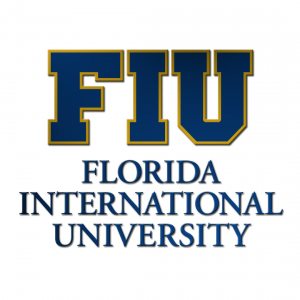A Florida International University Master in Finance student was kind enough to provide a review of the program for all of you to read. It provides a first person perspective on the program and should help any of you considering applying for their masters in finance.
Please describe recruiting or the general job scene at FIU. How is placement in the area, etc?
Since the master in finance program caters to people working full-time, either in or outside of finance, recruitment for the MSF isn’t exactly what you’d see with a more traditional student body.
Florida International University has 3 cohort tracks, each capped at 40 students (so there’s only 120 students per academic year total). The Financial Management track begins in August and ends 12 months later. This preps you for more traditional F500 and small- to mid-sized company corporate finance roles. Classes are held every Friday evening and Saturday morning at the Modesto Maidique campus.
The Financial Institutions track also begins in August and ends 12 months later. This is really for those that want to work in commercial banking, and their classes are on Brickell (the Wall St. of Miami) every Tuesday and Thursday evening. Those in this track tend to be more experienced and have senior commercial banking positions, so you don’t really see much recruitment here per se outside of networking.
The Investments track is the most quant-heavy of the 3 (I did this track) and begins in January and ends in December. I was very impressed by the quality of the students in terms of finance-related experience and sheer brain power. Apparently, those in the Investments track have the highest GMAT scores of all 3 tracks (although FIU does also accept the GRE.) Again, not much in the way of traditional recruitment, but there’s plenty of networking to be done throughout the program in and out of class.
With that said, our program is currently gathering placement stats for master in finance grads, so I can’t quote any actual numbers to you right now. However, once I know more, I’ll pass along the info. Another thing to note, though– FIU is very big on entrepreneurship, so most of us end up just starting our own businesses (I’m actually working on one right now with one of my best friends), and that may affect recruiting/placement numbers a bit.
How big was your class? Was it mostly UG’s or did you have a mix of working professionals?
I guess I kind of answered this in the first question, but like I said, there’s only 40 students max allowed in each track. Financial Management tends to have the more traditional students (i.e., just got a bachelor’s degree), while the Financial Institutions and Investments tracks have more seasoned industry people. I’d say it’s a healthy mix for the most part.
Who would you recommend a MSF to in general and the FIU program specifically?
In general, I’d recommend the master in finance to those interested in internalizing key concepts of finance, as well as learning more complex and technical issues associated with finance. A CFA is considered to be equivalent to an MSF, although the CFA is more recognized. It will only take time for those of us who did this program now to advance in our careers and eventually bring more prominence to the MSF degree. It should be equal or greater than an MBA in finance within a decade, I’d say.
For the FIU program in general, I’d recommend it to those who love being in warm weather year-round, want to party on South Beach about once a month, and are attracted to Latin American finance. Miami is the gateway to Latin America, so if you have any inclination that you want to be involved with that region, it’s a prime place to be.
Please comment on your experiences, regrets, etc. Feel free to talk about whatever you like.
I feel very positive about my experience with the MSF. I think it prepared me well for the CFA Level I (but we’ll just have to see the results on Monday!), as well as the more basic transactional roles in finance (i.e., investment banking, private equity) and more complex investment-related roles in the field (i.e., hedge funds). With my current skillset and education, I can literally tackle just about any finance position that doesn’t require a Ph.D.
I don’t have much in the way of regrets since I have a habit of making the best I can with what I’ve got, but I do wish South Florida had a more sophisticated finance community. It’s mostly retail finance for right now, but we are seeing more private equity firms and hedge funds come down here (those NYC taxes are getting to be a bit burdensome!) Maybe within a few more years, we can become a strong regional finance center for the domestic U.S. market. After all, the city in the U.S. with the most banks (commercial) is New York– Miami is number two. We’re a powerhouse in terms of Latin America, and I’d like to be a part of the process in helping expand its reach into the U.S. financial market as well.
Click here for more information on the Florida International Master in Finance program.



